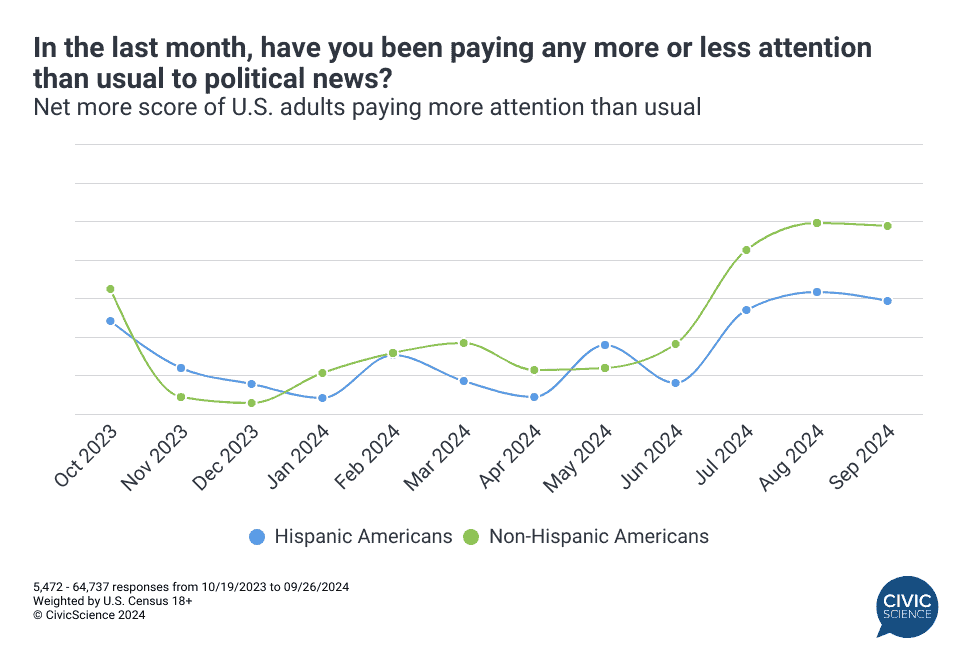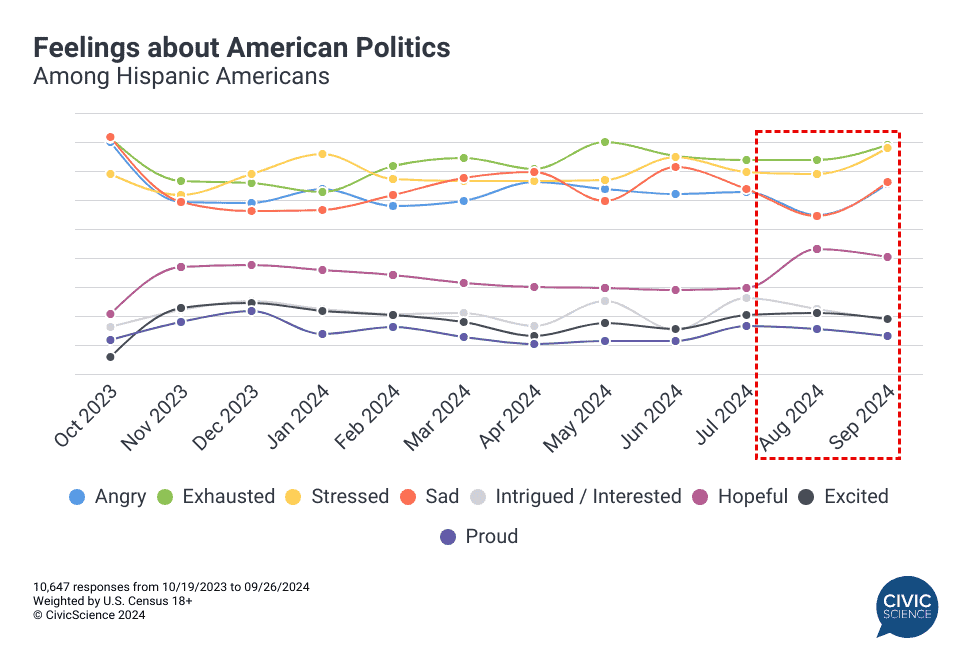This is just a sneak peek at the thousands of consumer insights available to CivicScience clients. Discover more data.
With just under 40 days until the 2024 presidential election, Hispanic Americans are likely to be a crucial voting bloc that could shape the outcome in November. Here are a few key insights into where they stand as we enter the final stretch of the 2024 campaign:
Voter participation looks to be strong.
According to new CivicScience data from September, 90% of voting-age Hispanic Americans would vote if the election were held today, with 83% confident in their choice between Vice President Kamala Harris, former President Donald Trump, or someone else, and only 7% undecided. In contrast, 92% of non-Hispanic Americans say they plan to vote, with a slightly lower undecided rate of 6%.1
In terms of how Hispanic Americans will vote – more than 40% say they’ll vote in-person on election day, while more than half look to take advantage of in-person early voting or will vote by mail.2
Answer our Polls: Do you plan on voting in the 2024 election?
Hispanic American interest in political news – and discourse – dips.
Despite an eventful month of political news in September, highlighted by the debate, fewer Americans reported following it compared to August. This decline was also evident among both Hispanic and non-Hispanic Americans, with Hispanics showing a slightly larger decrease month-over-month. However, non-Hispanic Americans still remain more engaged with political news than their Hispanic American counterparts. Percentages also still remain much higher than before President Biden withdrew from the race in July.

Voting-aged Hispanic Americans also have become slightly less likely to engage in political conversations with family (-1.4pp) and friends (-2.5pp), though they remain more likely to discuss politics than non-Hispanic Americans. Additionally, the percentage of Hispanic Americans who post on social media about politics over the last month decreased from 50% to 47%, but it is still significantly higher than that of non-Hispanics.
The drop in political news attention and conversations may reflect the emotional toll politics is taking on Americans.
While last month saw a notable jump in hopefulness among the Gen Pop (and a similar 6.7-point rise among Hispanic Americans), that optimism appears to have hit a roadblock in September. The latest data reveal significant spikes in negative emotions about politics among all Americans. Hispanic Americans were more likely to report feeling sad (+6.1pp), stressed (+5.7pp), and angry (+5.5pp) in September – accompanied by declines in positive emotions such as feeling hopeful, excited, and proud.

Join the Conversation: How would you grade the overall performance of the US Congress?
The political issues that matter most to Hispanic Americans are also shifting.
In July, healthcare, immigration, and national security were top priorities for both Hispanic and non-Hispanic Americans. By September, focus on national security decreased significantly among Hispanic Americans, allowing the ‘effectiveness of Congress/ability to pass legislation’ to jump into their top three political issues (not including social issues like gun violence or economic issues like inflation). This shift comes on the heels of failed legislation for IVF protections and as Congress works to temporarily avert a government shutdown ahead of the election.

These shifts in political priorities and fluctuating feelings about politics among Hispanic Americans highlight the broader volatility of the political landscape as the final push toward the election unfolds. Want to stay ahead and uncover trends among consumers as they prepare for the election? CivicScience’s real-time tracking data found in the 2024 Election Mindset Tracker can help keep you ahead of the curve and prepared for what may come next.


